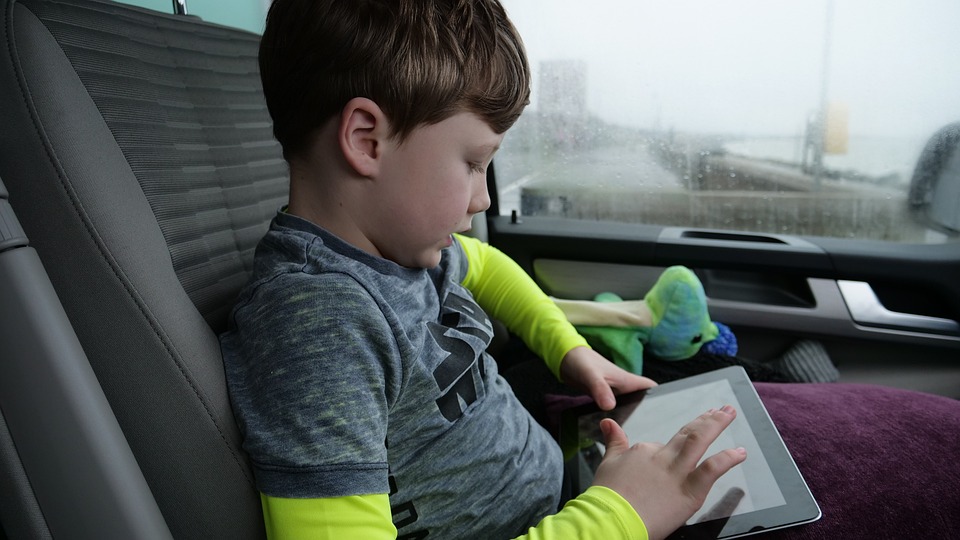
The average time children spent staring at screens during the COVID-19 pandemic rose 52% (increased by an average of 84 minutes/day) from pre-pandemic. This rise may be attributed to a reliance on screens for remote/hybrid learning or for staying in touch with friends during lockdowns. However, this increase in screen time has held consistent even after public health precautions were lifted.
Screen time is the time we spend in front of screens (e.g., watching television, playing video games, using a computer, using a cell phone). For children, exposure to screens happens in various ways that include:
- Passive consumption (e.g., reading, listening to music, watching television)
- Interactive consumption (e.g., online gaming, video games, browsing the internet)
- Communication (e.g., video chat, social media)
- Content creation (e.g., creating art or music on devices)
- Educational screen time (e.g., classes, group discussions)
Nowadays, screen time of some form has become an essential part of a child’s life whether that be to complete a homework assignment or to communicate with friends. Excessive use of electronic devices, however, has been found to be a risk factor of poor mental health and well-being in children. Excessive screen time has been found to be associated with:
- Difficulty sustaining focus
- Deprived sleep
- Anxious symptoms
- Depressive symptoms
- Self-isolation
In this post-pandemic era, where your child’s academic and social-emotional development is no longer as reliant on the use of electronic devices, it may be time to consider promoting healthy device habits to combat potential negative consequences on their mental health and well-being. Here are tips to find this balance as a family:
- Work together on a Family Media Plan
- Ensure your child is consuming high-quality and age-appropriate content
- Balance screen time with alternate activities such as connecting with family and friends in person, spending time outdoors, or sleeping
- Swap screens for other comparable activities such as having your child work on a Lego set instead of building in Minecraft
And remember – lead by example! Your children learn their screen habits from you. If you have the urge to use your cell phone at dinner or find yourself engaging with your phone more than your family during quality time, use your children as motivation to set your own boundaries to help form their healthier habits.
Submitted by Brianna I. Banks, M.A.
Brianna I. Banks, M.A.
Brianna I. Banks is a graduate student in Northern Illinois University’s Clinical Psychology Ph.D. program with an emphasis in pediatric/developmental psychopathology. She is especially passionate about incorporating her clients’ global strengths and their broader systems, which may include families and schools, in her assessments and recommendations. Brianna strives to meet her clients with empathy and compassion and provide them with comprehensive assessments that are tailored to each individual’s unique needs. In her free time, she enjoys exploring used bookstores in surrounding areas and chaperoning her dog, Ruby, on walks and dog park adventures.
To schedule an appointment with Brianna or any of our clinicians, please get in touch with our intake department at 630.355.9002 x1 or intake@myketandassociates.com to schedule an appointment.


